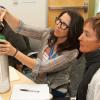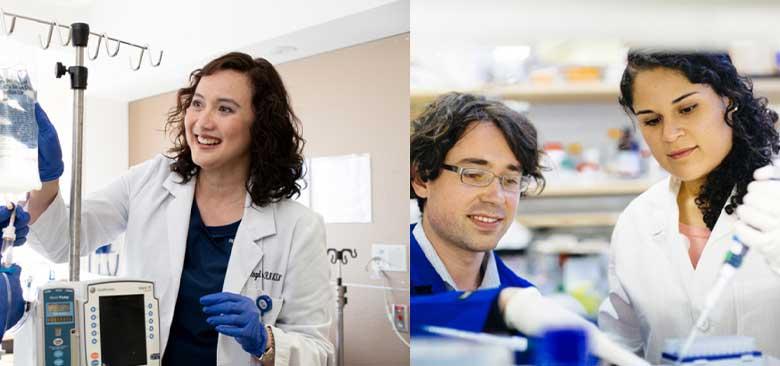
The School's Doctor of Nursing Practice (DNP) program emphasizes applying science to improve patient care while the PhD program develops innovative researchers to unearth scientific discoveries. (Photo credits: Barbara Ries, Anastasiia Sapon)
Advancing Science and Practice to Improve Patient Care
As the number of people living with complex health needs grows, so does the need for pioneering nurse researchers and leaders to innovate positive change.
To answer the call, the UCSF School of Nursing is expanding its Doctor of Nursing Practice (DNP) program. The School is opening admissions to non-advanced practice registered nurses (APRNs) and creating new pathways that will take registered nurses directly to a DNP degree in under four years. At the same time, the School’s PhD program continues to develop innovative nurse scientists whose research will improve care and services for those in critical need.
Meeting the Demand for Nurse Leaders
As health care systems have become more complex, the roles for nurse practitioners have evolved. Quality direct patient care remains a priority, but NPs are seeking proficiency in additional areas such as data analysis, health economics and policy.
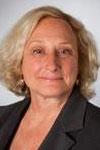 Mary Lynch “Whether you’re on the frontlines in the ICU or in primary care, NPs need to have a better understanding of the process of health care that goes far beyond clinical management,” said professor Mary Lynch, interim director of the Master of Science Program. “It must incorporate an understanding of pharmacology, immunology and health care policy. Historically, that understanding of complex systems was only a small part of NP preparation. Now, NPs need to understand how the superseding factors impact this behemoth of a health care system and where they fit into that system.”
Mary Lynch “Whether you’re on the frontlines in the ICU or in primary care, NPs need to have a better understanding of the process of health care that goes far beyond clinical management,” said professor Mary Lynch, interim director of the Master of Science Program. “It must incorporate an understanding of pharmacology, immunology and health care policy. Historically, that understanding of complex systems was only a small part of NP preparation. Now, NPs need to understand how the superseding factors impact this behemoth of a health care system and where they fit into that system.”
The DNP program, which was open to APRNs since its 2018 launch, will welcome non-APRNs starting this spring, paving the way for nurses with a master’s in health care administration and other areas to earn their DNP degrees. The expansion was the result of a groundswell of interest from non-APRNs who inquired about the program.
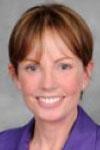 Maureen Shannon “This change is in response to our partners in the community who want to be leaders in improving patient outcomes, which is critically important for organizations all across the country,” said Associate Dean for Academic Programs Maureen Shannon. “As part of our continuous quality improvement, we are constantly evaluating our programs and asking ‘does it meet the needs of our graduates and the communities we serve?’”
Maureen Shannon “This change is in response to our partners in the community who want to be leaders in improving patient outcomes, which is critically important for organizations all across the country,” said Associate Dean for Academic Programs Maureen Shannon. “As part of our continuous quality improvement, we are constantly evaluating our programs and asking ‘does it meet the needs of our graduates and the communities we serve?’”
The School will expand the DNP program even further by creating new pathways through its Master of Science Program. Beginning in fall 2022, the School plans to offer DNP tracks in adult gerontology acute care (AGACNP) and acute care pediatrics (ACPNP). A neonatal track is being explored, and additional pathways through other specialties could be added in the future.
Aligning NP and DNP education through streamlined pathways will reduce course duplication, said Lynch. Post-baccalaureate students would earn their DNP in 11 quarters, while post-master’s candidates could finish in nine quarters.
The expansion aligns with recommendations from nursing organizations — notably the National Organization of Nurse Practitioner Faculties — to shift all entry-level NP education to the DNP degree by 2025.
“We’re not going back to how health care used to be,” Lynch said. “There will be more interaction with health policy and public health networks in the future. If an NP doesn’t have that understanding, they may not be able to advocate for their patients at decision-making tables — and we want our NPs to be active decision makers.”
The plan for the new pathways received input from the School’s faculty, and is advancing through the university’s approval process.
Educating the Next Generation of Nurse Scientists
While DNP-educated nurses implementing science are a critical part of the health care equation, equally important are the PhD-prepared experts whose focus is to produce the science.
The School’s PhD students collaborate with, and are mentored by, some of the nation’s leading nurse scientists to conduct innovative research that expands our understanding of human health.
Symptom management of patients with cancer during and after chemotherapy is of particular interest to professor Christine Miaskowski, a leading scholar in symptom science research.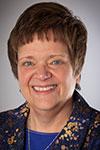 Christine Miaskowski Miaskowski collaborates with and mentors PhD students on projects that examine the symptoms that people with cancer experience during chemotherapy.
Christine Miaskowski Miaskowski collaborates with and mentors PhD students on projects that examine the symptoms that people with cancer experience during chemotherapy.
In addition to questionnaires and patient examinations, Miaskowski and her students collaborate with assistant professor Kord Kober, who leads the Kober Lab, that utilizes phenotypic and molecular data to understand the complex mechanisms that underlie common symptoms in oncology patients. This multifaceted approach provides students with transdisciplinary education and training.
“Symptom science is still a pretty big mystery,” Miaskowski said. “Understanding some of the molecular mechanisms involved is important.”
The students’ research is already showing promising results.
Carolyn Harris, a second-year PhD student, has identified subgroups of patients who are most affected by these symptoms. For example, Harris’s initial findings suggest that patients with higher levels of evening fatigue and depression are most likely to be younger, female, live alone and have breast cancer.
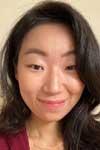 Joosun Shin First-year PhD student Kate Oppegaard’s research has found that patients who experience high to very high levels of depression during chemotherapy reported lower annual incomes and were less likely to be married or partnered.
Joosun Shin First-year PhD student Kate Oppegaard’s research has found that patients who experience high to very high levels of depression during chemotherapy reported lower annual incomes and were less likely to be married or partnered.
And Joosun Shin, a first-year PhD student, found that patients who reported increased pain are more likely to be single, unemployed, have a lower annual household income, and have a higher body mass index, among other factors.
These demographic characteristics matter because the ability to match them with specific symptoms could help clinicians tailor treatment plans to minimize or possibly prevent the occurrence or severity of these debilitating symptoms.
“From a nursing perspective, it’s about looking at the big picture,” Harris said. “What’s going on in their home and personal life? How much support do they have? Are there structural 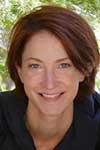 Carolyn Harris barriers that may be contributing to their symptom experience? It’s not just about understanding a symptom better to in order to develop a medication. We need to understand from the patient’s perspective what are the bigger issues.”
Carolyn Harris barriers that may be contributing to their symptom experience? It’s not just about understanding a symptom better to in order to develop a medication. We need to understand from the patient’s perspective what are the bigger issues.”
Harris, Oppegaard and Shin have been invited to present their findings this April in podium presentations at the Oncology Nursing Society Congress, the largest conference dedicated to oncology nursing, as well as the Symptom Science Advances in Oncology Nursing Virtual Event in February.
The opportunity to collaborate with Miaskowski through the School’s PhD program has been valuable, not only for the knowledge she imparts, but her encouragement as well, the students said.
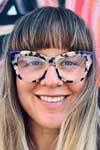 Kate Oppegaard “Working with Chris changed the course of my professional life because she helped me see how dynamic and meaningful a career in nursing research can be,” Oppegaard said. “She is a formative role model for me and a fantastic mentor.”
Kate Oppegaard “Working with Chris changed the course of my professional life because she helped me see how dynamic and meaningful a career in nursing research can be,” Oppegaard said. “She is a formative role model for me and a fantastic mentor.”


